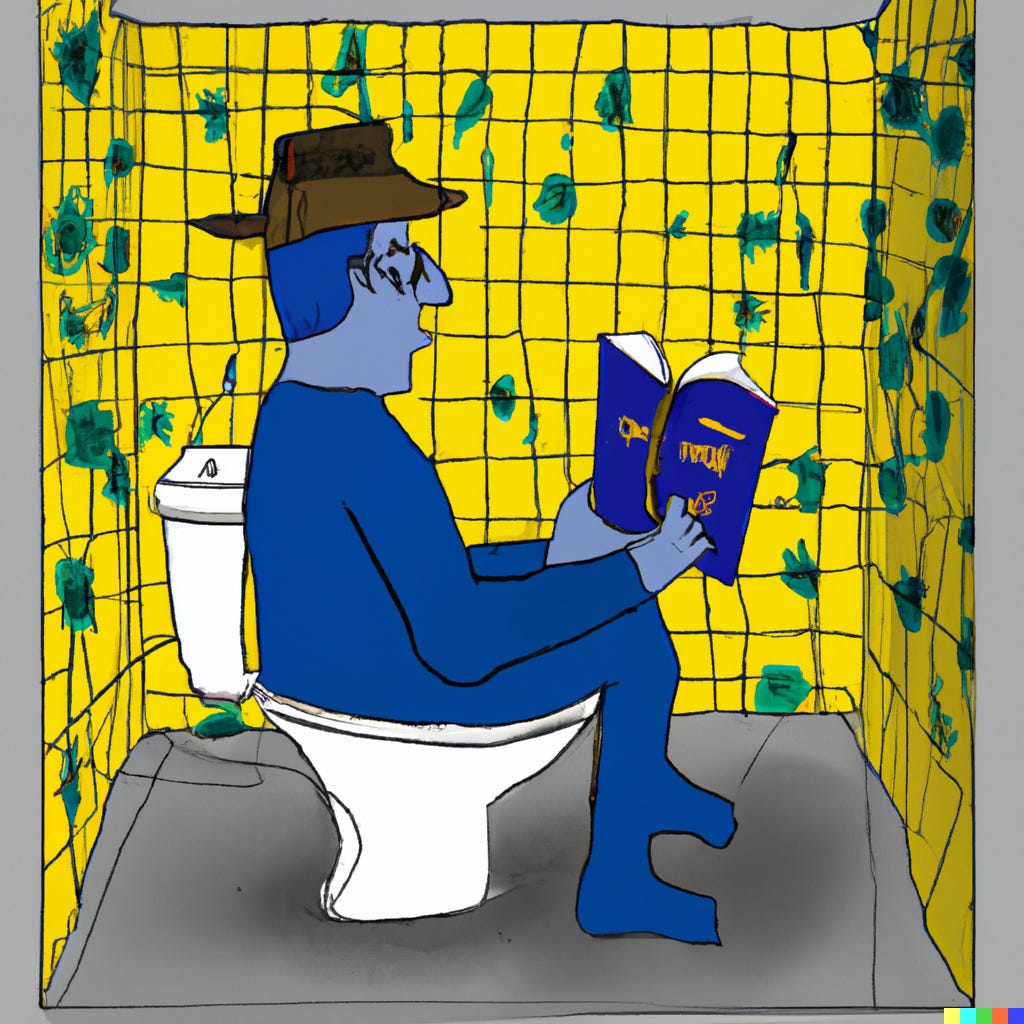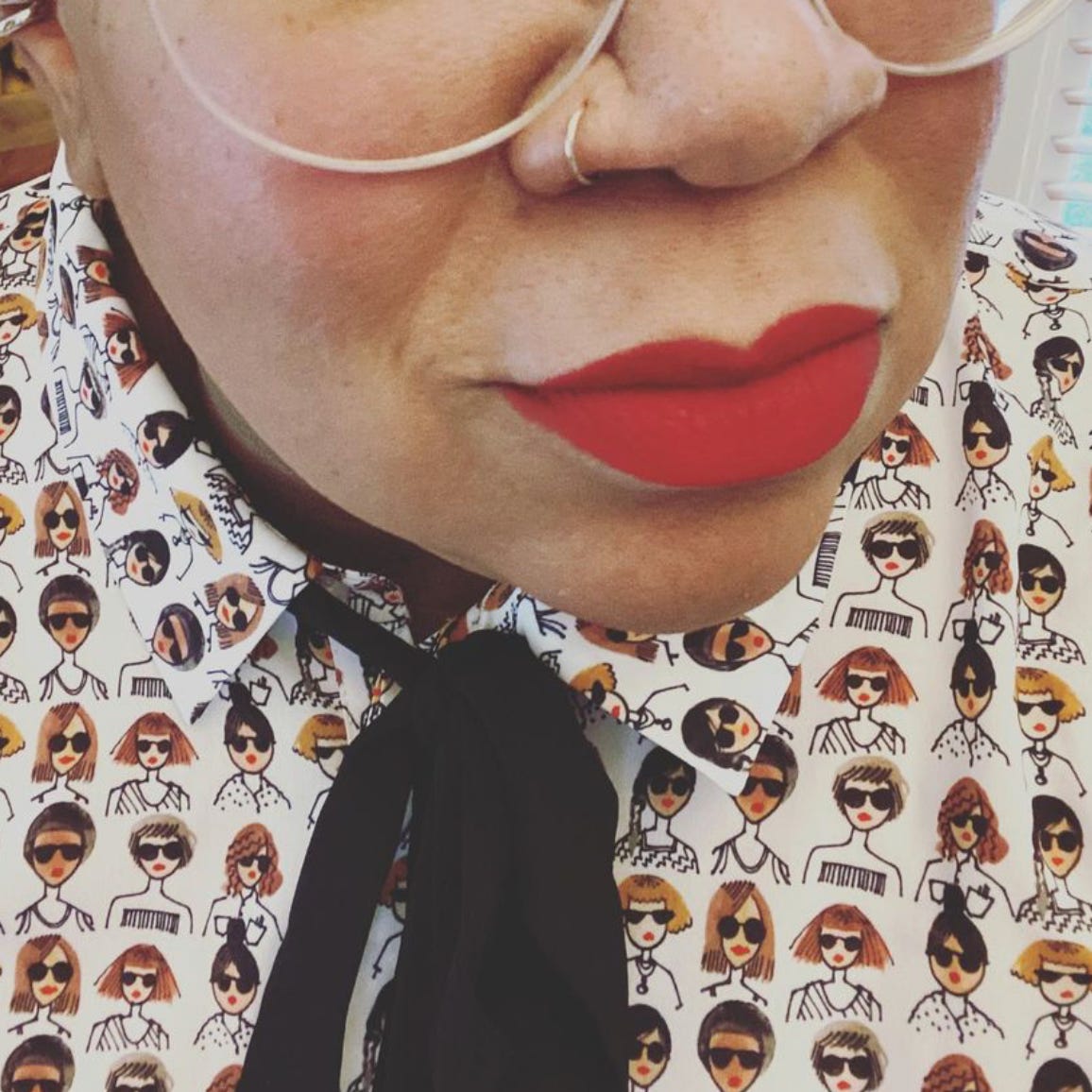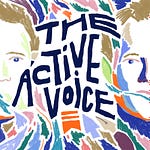I was hoping to meet Samantha Irby in person, since podcast interviews are more fun that way and she is a fun person, but she is obstinately committed to Kalamazoo, the small Michigan city plonked equidistant from three Great Lakes. This podcast has not yet reached the point where I can justify the expense of a Courtyard Marriott in Kalamazoo for one interview. So, Zoom it was.
Kalamazoo looms so large in Samantha’s bio that it has become part of her brand. She doesn’t care for the literary cool clubs of New York and Los Angeles. She’s an outsider, but loved by insiders. She has a voice all her own—energetic, profane, wacked-out—that is of some place other than where all her peers seem to reside (physically and psychologically). And she is very nice, in that way that obliges everyone to remark on how nice people from the Midwest are.
Relatedly, she quit Twitter. Unrelatedly, she has a Substack about Judge Mathis. Actually, on second thought, I am pretty sure that is related. Relatedly, she has a new book of essays called Quietly Hostile, her fifth (“please buy it or I will die,” she implores readers). Relatedly, she writes for TV shows, including Shrill, Tuca & Bertie, and most up-to-datedly, And Just Like That… (the Sex and the City reboot). These are impressive achievements for someone who started her writing career with a MySpace blog in 2008 (“I met this dude who was like, ‘I’m really into writers’ and I wanted him to be really into me”).
That background, with a love for writing online developed before social media became a Thunderdome, has helped her find freedom in her art, so she can really let loose with foul language and exquisite potty humor. Samantha Irby gets to be who she wants on the internet. If only she could do it without the death threats…
Quotes from the conversation
On talking to Miranda from the toilet
If you don’t have a pelvic floor anymore you can’t laugh without pissing yourself. I was, like, I hope I don’t sneeze on this call because she’s going to hear a lot.
On taking heat from Sex and the City cultists
All of a sudden everybody’s Aunt Linda is fucking DMing me on Instagram being like, “You fucked up my favorite show. You should kill yourself.”
On writing a newsletter about Judge Mathis
I think of it as my job to watch episodes of this television show and write about it for people.
On making a living as a writer
I am ready at any moment to have to go bag groceries or whatever when my career dries up for whatever reason because the market is fickle.
On knowing your strengths
One of the things that makes it tough for creative people is this expectation that you have to be everything to everyone. I write jokes about diarrhea, I write about depression, I write about the bullshit that’s interesting to me. You don’t need any of my uninformed political opinions. You don’t need to know.
On writing for yourself
I have to be writing about a thing that I feel motivated to write about. I write for myself first. And I don’t think that you can go wrong if you’re doing that.
On being a creative person online
Putting yourself out there is so brave in whatever way you do it. And no one ever talks about that bravery. And it’s very internet culture to be, like, you need to read the negative reviews, you need to hear what people are saying. And you don’t. You don’t. You don’t.
On social media criticism
I am the type of person who if someone has a problem, let’s say with something I’ve written right? I don’t get defensive. My natural response is to be like, Oh wait, I don't think you understood what I was trying to do. Let’s talk about it. Right? But you can’t do that on the internet.
On being at home in Kalamazoo
I hate New York. Hate it. Only because, and I have the same attitude with cities as I do with books, it’s just not for me. It’s too fast. It’s too loud. There’s too much. I have been many times, and every time I’m like, time to go home.
On the grimness
Depression memes really get me through the day right now. So thank you to all of the meme creators. I’m now listening to mostly sad music. I am not listening to upbeat positive music. I’m leaning in. Everything’s bad. The internet is still a scary toilet.
Advice to younger writers
Aim low. I have always, always managed my expectations. And I think that is why I am as satisfied as I’ve been in this career. Rather than striving and being rejected and any of that stuff, I just am like, I’m going to do what comes to me. I’m going to take the opportunities that I’m given and I’m not going to shoot for the moon. And that way I don't have to be sad when I miss the moon.
Samantha’s recommended read
Show notes
Subscribe to bitches gotta eat! by Samantha Irby
Find Samantha’s author profile and personal website
Quietly Hostile, published by Penguin Random House, is out in May 2023
Follow Samantha on Instagram
[01:27] On that phone call from Cynthia Nixon
[07:25] Writing for And Just Like That…
[11:38] Receiving feedback online
[13:44] Shutting down comments
[15:48] Being tagged by “some bitch”
[19:17] The challenge for modern writers
[27:27] Advice for emerging writers
[33:11] Becoming a writer, not giving up the day job
[35:32] From Myspace to Substack
[44:39] The newsletter as a job
[46:44] Getting voicemails from Warner Bros
[50:30] Living in Kalamazoo, Michigan
[56:06] Depression memes and hopefulness
The Active Voice is a new podcast hosted by Hamish McKenzie, featuring weekly conversations with writers about how the internet is affecting the way they live and write. It is produced by Hanne Winarsky, with audio engineering by Seven Morris, content production by Hannah Ray, and production support from Bailey Richardson. All artwork is by Joro Chen, and music is by Phelps & Munro.
Postscript






















Share this post